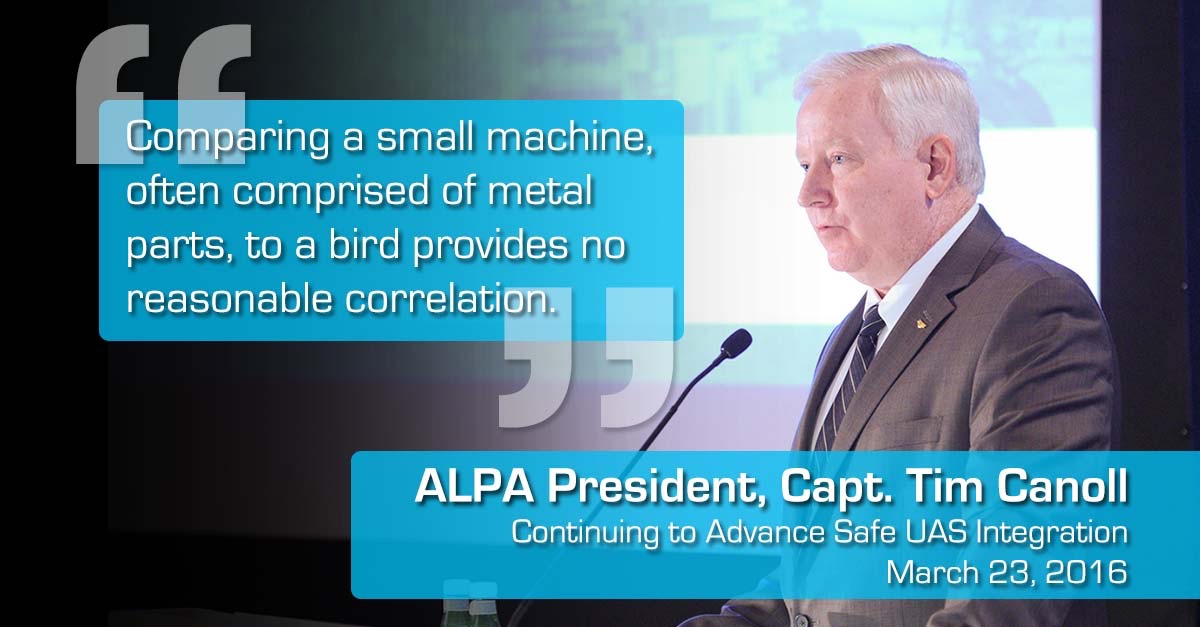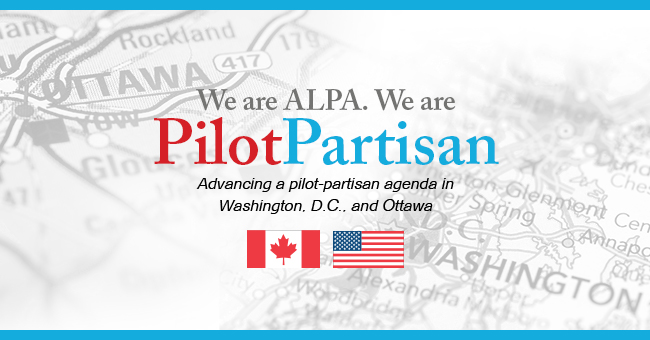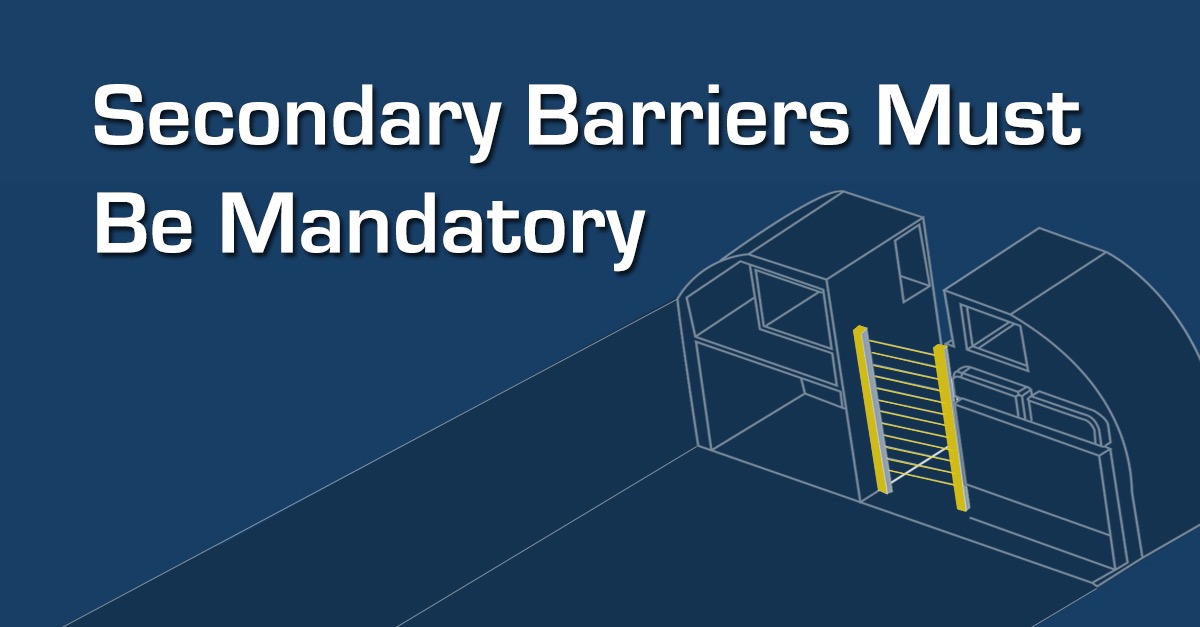Leadership From the Flight Deck
12 Results for Category Pilot Partisan
Time is running out for many American workers. The Payroll Support Program—which prevents companies that receive CARES Act grants from making layoffs or involuntary furloughs and secures the pay and benefits for airline workers—expires on September 30. This fall, hundreds of thousands of more workers across our entire economy could lose their jobs and health insurance due to the pandemic.
Tags:
By Capt. Tim Canoll
Earlier this month, I testified before the U.S. Senate Committee on Small Business and Entrepreneurship on the need to fully regulate all uses of unmanned aircraft systems (UAS).
During this hearing, additional testimony provided by the Mercatus Center at George Mason University cited a recently published report alleging that the “small UAS under 2 kg pose a negligible risk to the safety of the national airspace.”
ALPA takes exception to these conclusions about the extremely low risk of collision. The report’s statistics were built by evaluating the historical number of wildlife strikes and damage caused throughout the past 25 years. Comparing a small machine, often comprised of metal parts, to a bird provides no reasonable correlation. Aircraft engines have been tested against birds and designed to withstand a certain level of ingestion. To date, no such tests have been conducted with UAS. Based on a lack of research and testing data, it is presumptuous to correlate UAS and bird strikes.
Categories: Advocacy, Pilot Partisan
By ALPA Staff
After the House of Representatives introduced its FAA reauthorization bill last week, ALPA quickly voiced our opposition to several components of the draft legislation, including the failure to properly and appropriately regulate the transportation and packaging of lithium batteries by air.
Tags: Cargo, Lithium Batteries
By Capt. Tim Canoll
The proposed FAA reauthorization bill introduced in the U.S. House of Representatives this week falls significantly short for airline passengers and air cargo shippers when it comes to advancing the high standards that make air transportation in the United States so extraordinarily safe.
A key reason for the extraordinary safety of our system is our commitment to providing airline pilots with the highest standards of training and qualification. Today’s first officer qualification and training requirements were prompted by Congress in 2010 following four fatal airline accident investigations that identified the pilots’ lack of training as a factor in the accidents. These regulations weren’t arbitrary, nor were they sudden––the safety-focused rules came out of an industry-wide effort led by representatives of the regional airlines. We are pleased the sponsors of the House FAA reauthorization bill recognize the importance of these regulations and agree that they must remain firmly in place. ALPA will vigorously oppose any attempts to change this regulation via amendment to the FAA reauthorization bill.
Categories: Advocacy, Pilot Partisan
Tags: Cargo, FAA Reauthorization
By Captain Jerry Timmerman, Delta B737
Fifteen years ago, at the end of a prosperous decade, our planet was thrown into chaos when four U.S. passenger airplanes were hijacked and turned into missiles. Emotional, economic, and enduring scars from September 11th, 2001 are with us still. As a country, we vowed then to never let such a tragedy happen again, which is why we must mandate secondary barriers on all commercial passenger aircraft now.
In the immediate aftermath of the attacks, we upgraded our security systems. Cultural and physical changes were made, studied, adjusted, and re-implemented in order to create the risk-based, layered security approach we have now. Today, we have hardened cockpit doors, Transportation Security Officers at every entrance point, and the Federal Flight Deck Officers program, but we still lack one key layer in our aviation security structure: mandatory secondary barriers.
Categories: Pilot Partisan
Tags: Secondary Barriers





